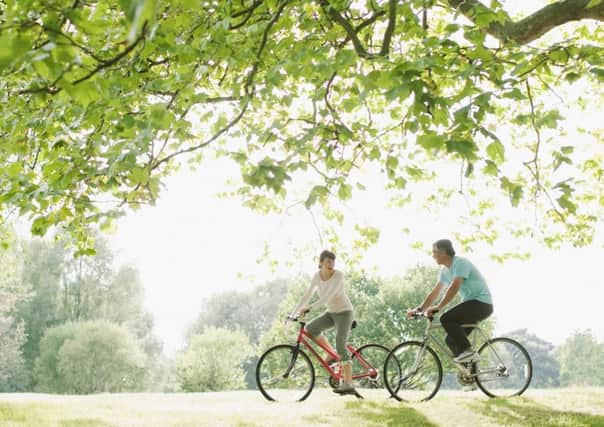How cycling’s marginal gains theory could revolutionise food production


Now marginal gains – the idea that making multiple small changes can lead to significant effects overall – could offer a solution to improving agricultural production and helping feed the world’s growing population.
Researchers at the University of Edinburgh believe making minor changes to how food is currently produced, supplied and consumed around the world could free up around a fifth of agricultural land.
They found that small steps – such as reducing food waste, tweaking diets and improving the efficiency of food production – could together reduce the amount of land required to feed the planet by at least 21 per cent.
Altering diets in developed nations was also found to have the greatest potential to reduce the impact of food production.
Changes are needed to continue to provide nutritional food without damaging the environment, experts say.
Freeing up areas used to grow crops and keep livestock could also aid conservation efforts and improve biodiversity. The concept of marginal gains was popularised by Sir Dave Brailsford, the former performance director at UK Cycling, who oversaw numerous British success stories in the sport.
Sir Dave was committed to a strategy that he referred to as “the aggregation of marginal gains” – or the philosophy of searching for a tiny margin of improvement in everything you do.
Scientists from the University of Edinburgh and the Karlsruhe Institute of Technology had the theory in mind when they produced a report that suggests small changes such as eating slightly less meat, substituting chicken or pork for beef and lamb, and reducing transport and processing losses could revolutionise food production.
Dr Peter Alexander, from the University of Edinburgh’s School of GeoSciences, who led the study, said: “The current system is failing to deliver the food we need to be healthy and is doing so in a way that is causing a crisis for biodiversity and contributing to climate change.
“While a transformational change is required, we need an approach that is achievable in practice.
“A vegan or vegetarian diet isn’t likely to be adopted by everyone and we think a set of small steps in the right directions will be more likely to be adopted and ultimately successful.”